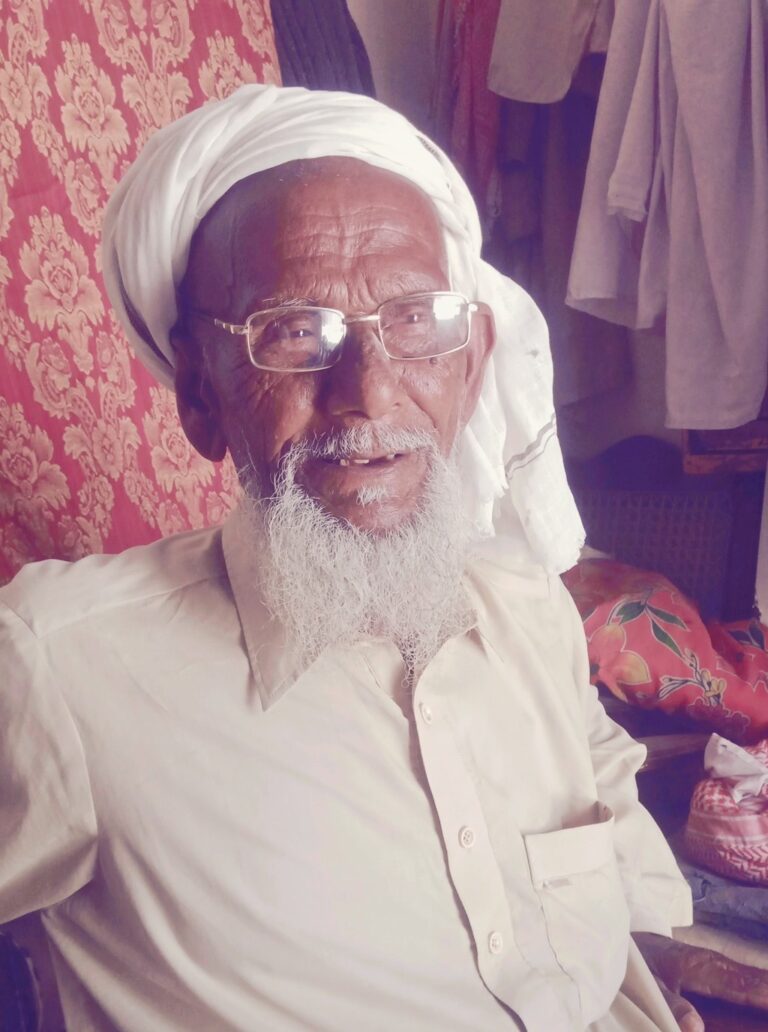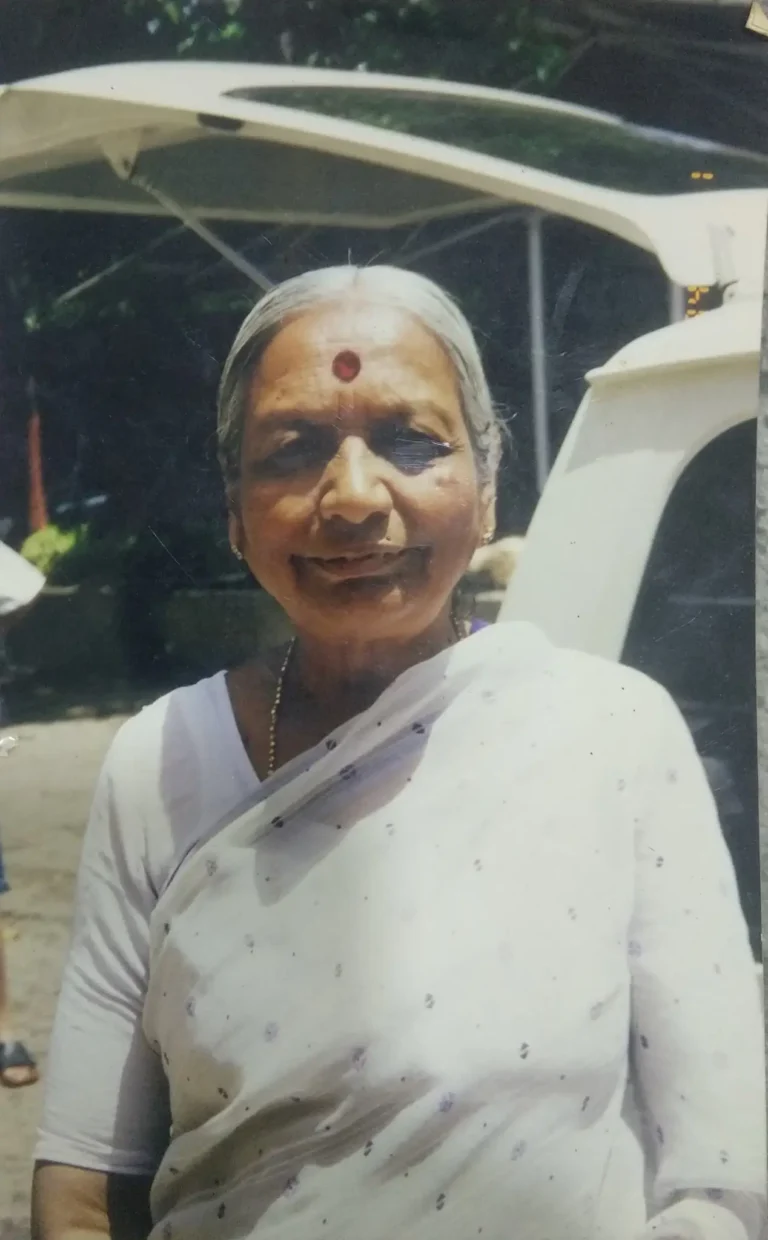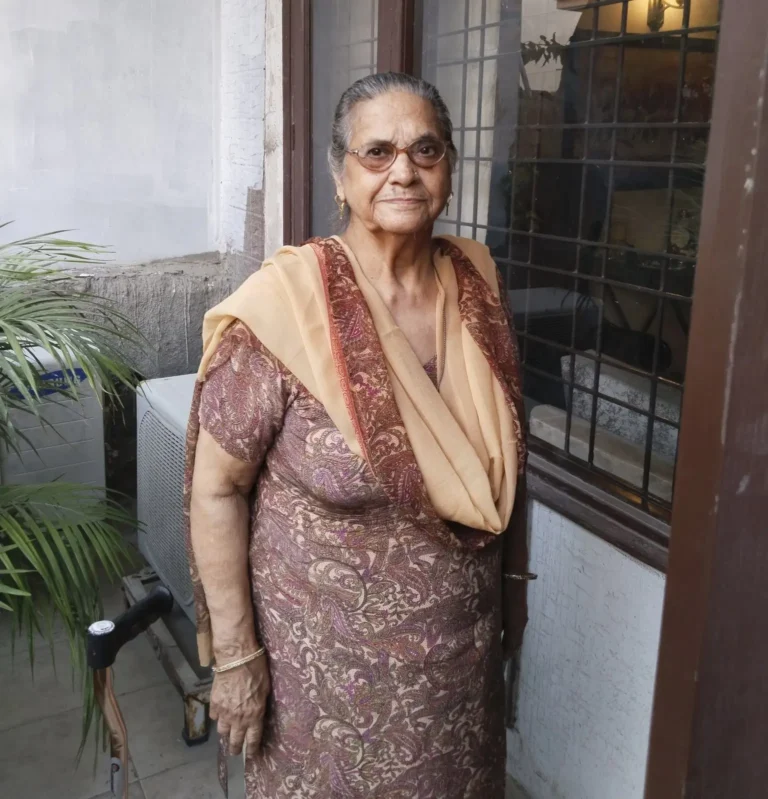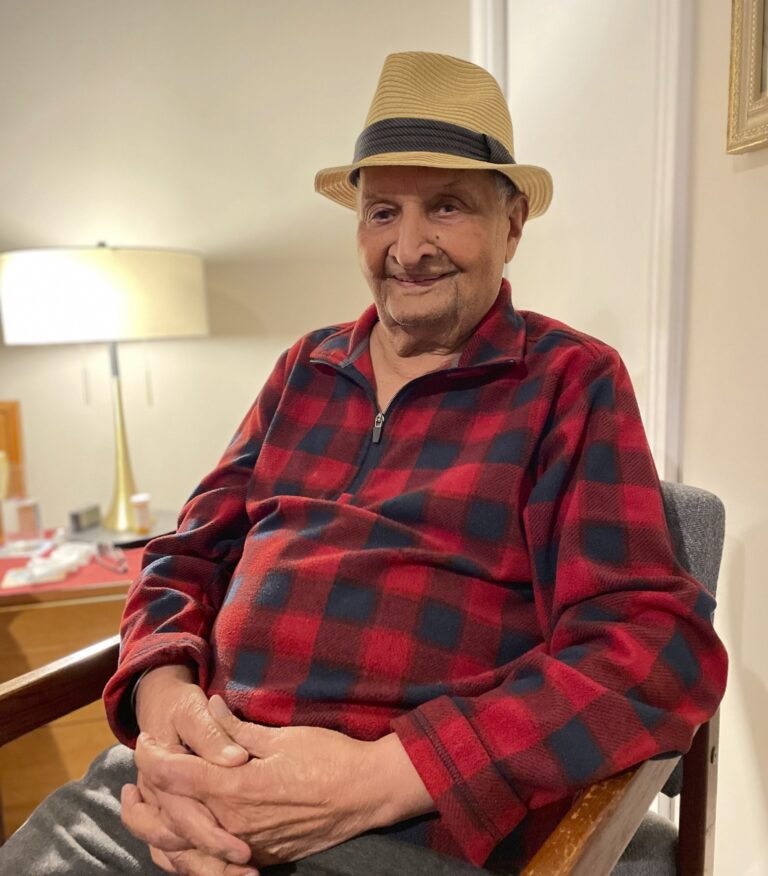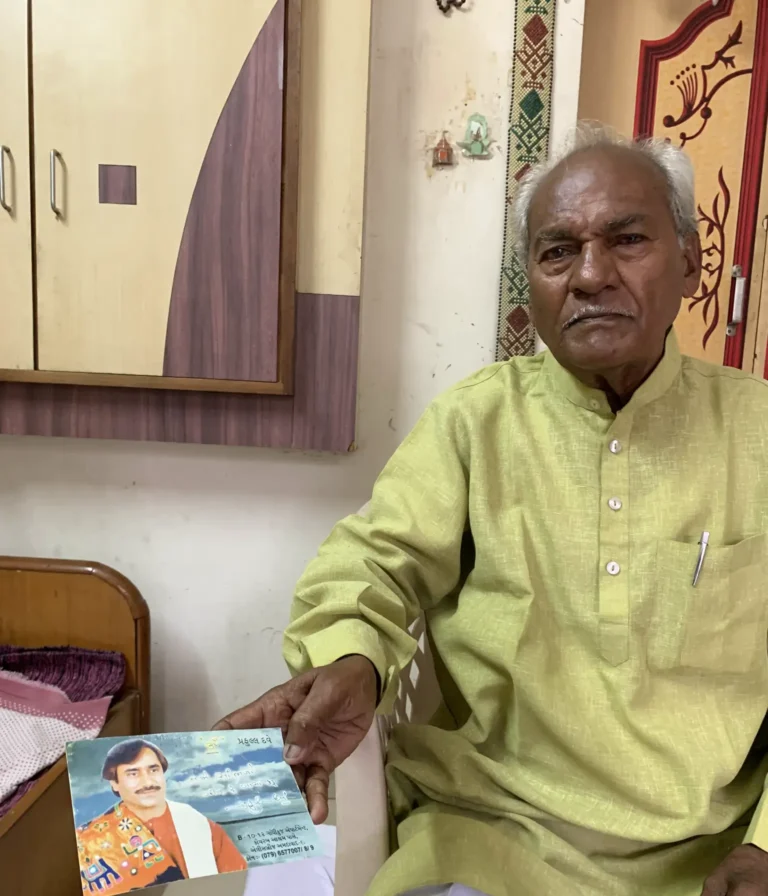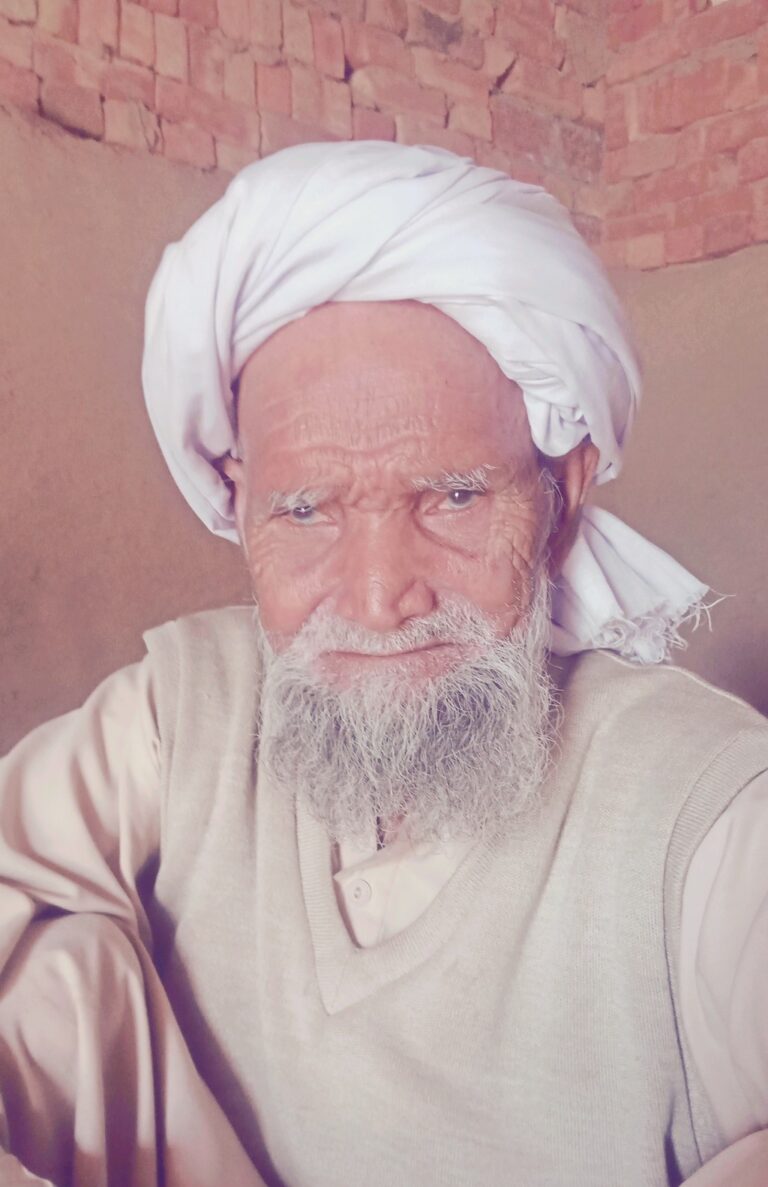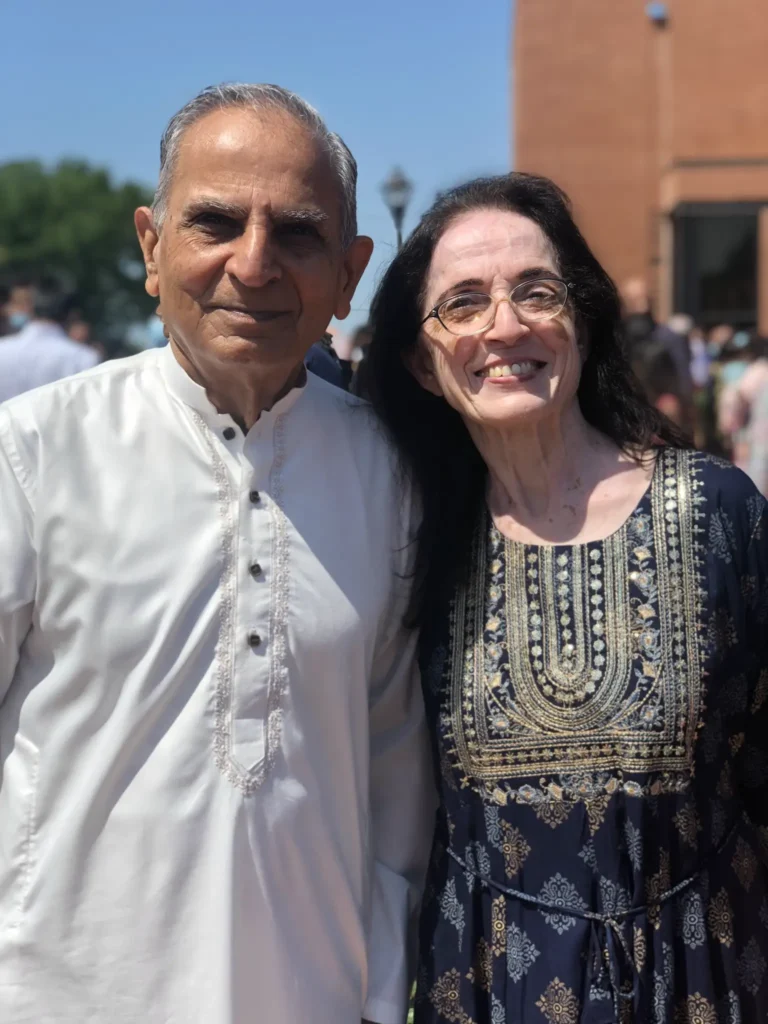Chimanlal Shivrambhai Ratnottar recalls that as a child his family members used to lovingly call him “Bacchu”. He remembers
Oral Historian: Divyang Mokariya
Camera Person: Divyang Mokariya
Summary:
Chimanlal Shivrambhai Ratnottar recalls that as a child his family members used to lovingly call him “Bacchu”. He remembers his house in Zanzarka where he did his schooling and spent his childhood. He was born in 1946 and his house in Zanzarka as he grew up was a kutcha house (a house made of mud and straw). He remembers how most of the work in the house was done by his mother. He used to play games in his childhood and there was nothing much to do back then, just going to school and playing outdoors. His father, Shivrambhai Bheemdaasji Ratnottar, was a jyotish (a vedic astrologist).
Since the age of 7 or 8, he began playing the harmonium and was always fond of singing. He talks about his work as a clerk in the post office and how he sings at dayro (a Gujarati gathering for folk and classical music). He fondly remembers how once his bhajans (devotional songs) were broadcasted on radio and were also screened on Doordarshan (an Indian state-owned public television broadcaster).
His family’s kuldevi (an ancestral tutelary deity) is the goddess Chamunda (goddess of war and epidemics, famines, and other disasters) but they are also devoted to goddess Bhavani (“giver of life”). He tells a family story of how his grandfather once encountered a wooden idol that had fallen from the sky and then went to the place in Vautha where seven rivers meet; the place is also known as ‘saptasangam’ and the Vautha fair is annually held there. His grandfather attempted to immerse the wooden idol in the river but the idol came back. Since then, their family has been devoted to goddess Bhavani.
Later when he went to Ahmedabad and started working in the post office, he sang both bhajans and dayro and won many competitions. He also holds a bunch of certificates and newspaper cuttings of those competitions. In 1994, he had a dayro function and Hemant Chauhan (an award-winning singer specializing in Bhajan and other folk genres) visited his place.
He is not a classical singer; he mostly sang desi (of the Indian subcontinent) bhajan and prachin (ancient) bhajan of Narsinh Mehta (15th-century poet-saint of Gujarat, India) and Meerabai (a 16th-century Hindu mystic poet and devotee of Krishna). While working in Ahmedabad, he would always go back to his vatan (homeland) for certain festivals. Festivals like Holi (festival of colors, love, and spring), Makar Sankranti (celebration of the sun’s journey from the Southern to the Northern Hemisphere), and Janmashtami (celebration of the birth of Krishna) were celebrated in his village of Zanzarka. But he would mostly go back to his village during Navratri (a festival honoring the goddess Durga) to sing in functions. People would gather and listen to him and other performers playing and singing bhajans devotionally. Navratri was very heartily celebrated in his village. Men would sing and women would do garba (a form of Gujarati dance). Everyone used to participate and gather. Often street plays were also performed there.
From 1965 he started to live in Ahemdabad. In 1967 he got married to Hansaben Pandya. He used to work as a salesman in khadi bhandar (“khadi stores”; khadi is a hand-spun and woven natural fiber cloth promoted by Mahatma Gandhi as a means of self-sufficiency) for 5 years. In 1970 he started working at India Post. For 2-3 years he worked as a postman and later, after taking several clerk examinations, he managed a position at the head post office almost during the period of Indira Awaas Yojna (a government-created social welfare program to provide housing for the rural poor in India).
Villages used to be short on producing all kinds of groceries so they used to get it supplied from larger districts. Dhandhuka used to supply them. There were no clocks in the village when he was a child and people would track time by looking at the sun. Zanzarka back then had only a Hindu population. Patels in his village used to own most of the land and they would do the farming, and when it was harvesting period, they would look for dadhiyas (daily laborers) and they would get the work done by them. In his village they would travel by walking and when he came to Ahmedabad he would go to places on a bicycle or take a bus.
People did not talk about Partition, the British or Gandhiji in his village; there was not a lot of talk around this topic when he used to live there. But when he came to Ahmedabad, he would listen to people talking about riots and violence.
He fondly remembers the memories of singing with many artists and doing functions in gatherings and baithaks (meeting rooms). His wife and he had two sons and one daughter, and they all live in Ahmedabad. He also showed a photograph of his late wife Hansaben. He said that he continues to sing and practice his harmonium and tabla (a pair of small hand-drums attached together). Singing with different artists has been one of his fondest memories.

